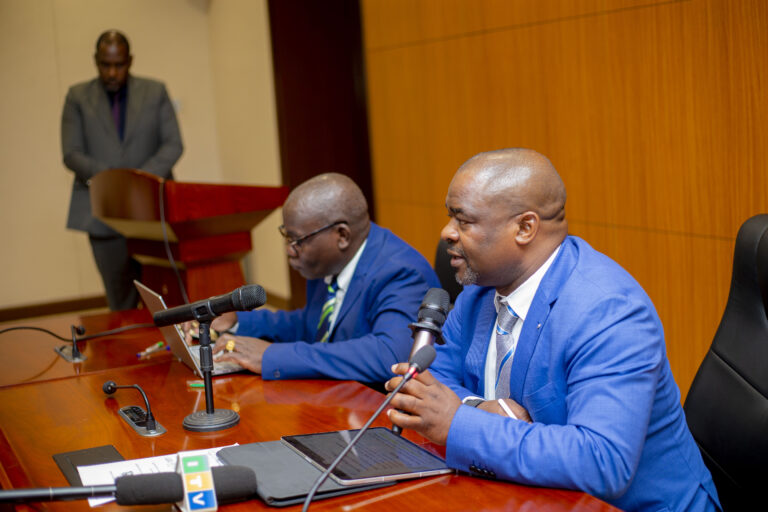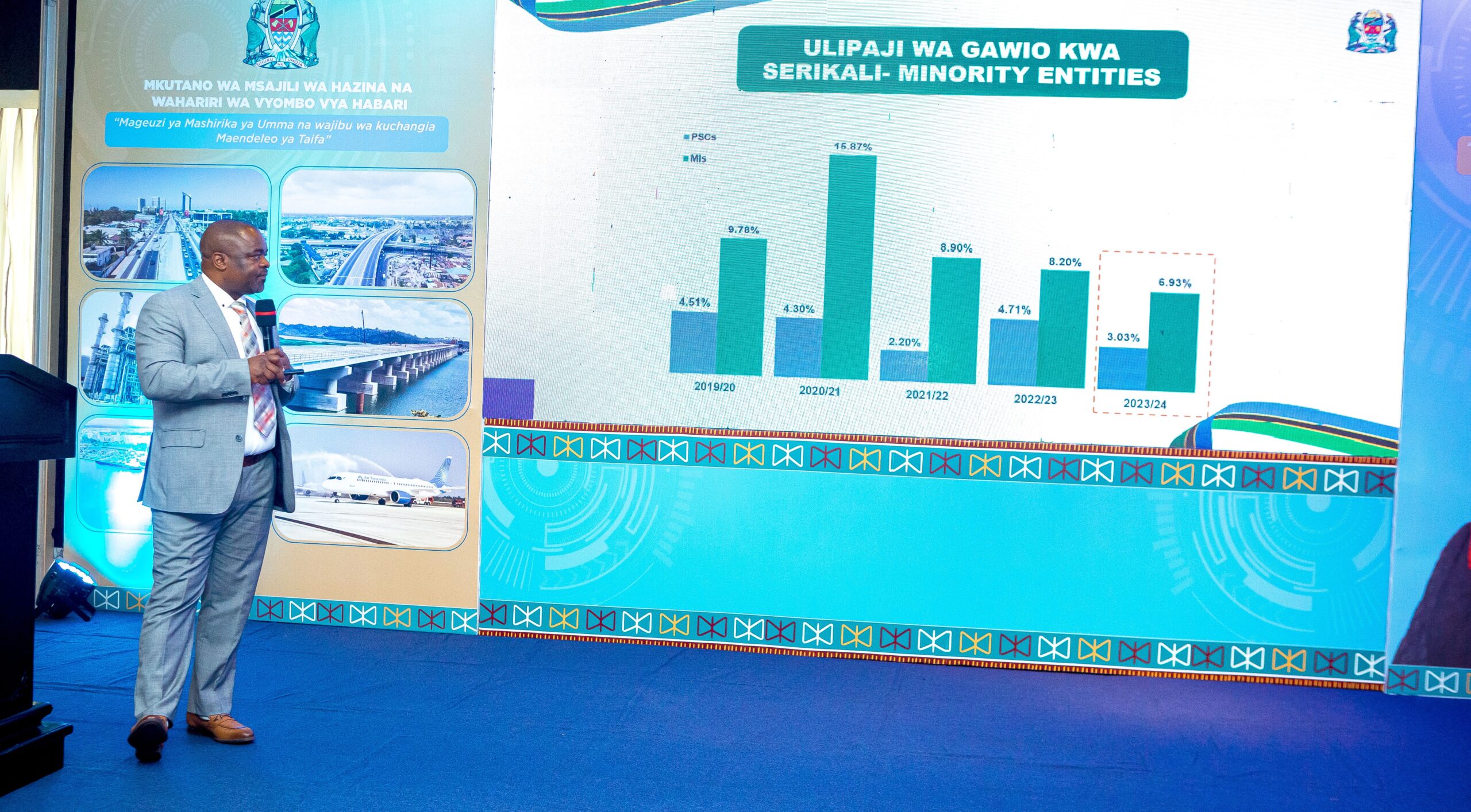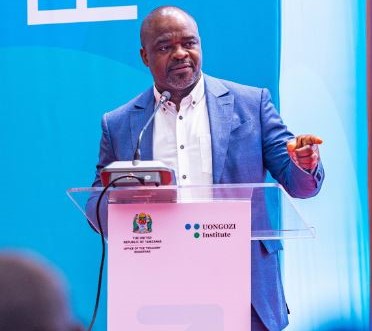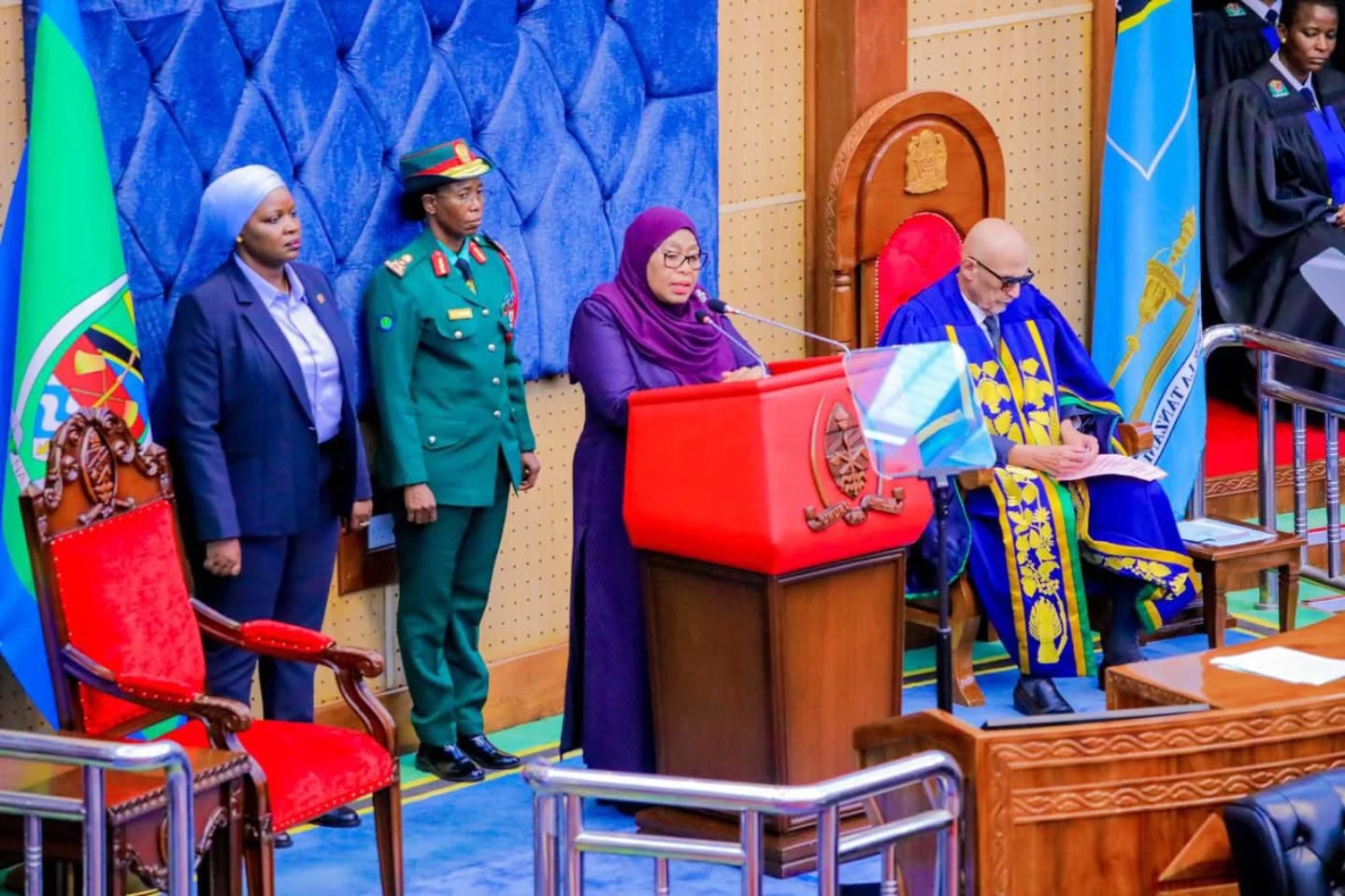Kibaha. As part of efforts towards advancing reforms in public institutions, the Office of the Treasury Registrar and the National Audit Office of Tanzania have forged a partnership to collaborate across eight key areas.
The collaboration aims to enhance good governance, ensure the effective implementation of audit recommendations, and promote the principles of the R4 philosophy championed by President Samia Suluhu Hassan.
Additionally, it will focus on improving management and leadership systems, bolstering financial accountability, and ensuring the efficient management of public resources.
The agreement was formalised during a two-day working meeting, which commenced on Tuesday, February 25, 2025, at the Mwalimu Julius Nyerere Leadership School in Kibaha, Coast Region.
The meeting was attended by the Treasury Registrar, Mr Nehemiah Mchechu, and the Controller and Auditor General (CAG) of the Government of the United Republic of Tanzania, Mr Charles Kichere.
Both parties underscored the importance of embracing ICT and providing training to employees as part of their collaborative effort to improve the functioning of public institutions.
Speaking to reporters on Wednesday, February 26, 2025, Mr Mchechu said good governance was crucial for the success of the ongoing reforms in public institutions.
“We must improve good governance, and that is why we have seen the need to collaborate with the National Audit Office, which has a major role in ensuring good governance in public institutions,” said Mr Mchechu.
Mr Mchechu further said that the collaboration between the Treasury Registrar’s Office and the CAG would foster regular interaction between the two offices’ management teams, thereby enhancing the efficiency of public institutions.
By doing so, Mr Mchechu said the efficiency of public institutions would increase, thus enhancing their contributions to the government’s Consolidated Fund.
“There is already good productivity, but our desire is to see these public institutions enhance creativity and efficiency so that we achieve positive outcomes from the investments made by the government,” he said.
As of June 30, 2024, the government had invested Sh86.3 trillion in 308 institutions under its oversight, including those in which it holds minority shares.
This marks a 14.2 percent increase compared to Sh75.6 trillion in 2023.
The government’s goal is to ensure that Tanzanians at large benefit from these investments, which is why, alongside increasing investment, several measures are being taken, including granting commercial and strategic institutions the autonomy to manage themselves.
Autonomy
“We closely monitor the performance of public institutions, and those that meet the set criteria will be granted more autonomy,” Mr Mchechu noted.
Among the criteria is the ability to operate using the institution’s own revenue without relying on government grants, contributing non-tax revenue to the government’s main treasury fund at a level set by the Treasury Registrar, and the ability to operate commercially and compete both domestically and internationally.
Other criteria include the sensitivity of the services provided and contributing to national security and welfare, those that offer services that impact multiple sectors of the economy (multiplier effect), and those that contribute to economic, political, social, and security matters.
Mr Kichere, for his part, described the meeting as productive, highlighting the discussions surrounding national interests.
“We discussed improving financial accountability and implementing various resolutions aimed at ensuring public funds are used efficiently, transparently, and in accordance with good governance principles,” said Mr Kichere.
Thecollaboration also centres on ensuring that audit recommendations are implemented effectively across public institutions.
“The Treasury Registrar cannot shoulder this responsibility alone, nor can the Controller and Auditor General, which is why it is vital for both offices to speak the same language,” Mr Kichere remarked.
Also, on the agenda of cooperation is the best way to ensure public institutions effectively manage public resources to operate efficiently and thereby reduce dependency on the central government.
“We want to see public institutions move away from dependence and instead take a leading role in strengthening the government’s Consolidated Fund,” Mr Kichere stated.
4Rs
In this context, we agreed to practically implement and live the R4 philosophy of President Samia to achieve the intended goals.
This philosophy focuses on Reconciliation, Resilience, Reforms, and Rebuilding the Nation.
“We have agreed on the best way to collaborate in implementing the R4 philosophy with the aim of enhancing efficiency in managing the performance of public institutions,” said Mr Kichere.
To increase efficiency, Mr Kichere also mentioned that his office and that of the Treasury Registrar agreed to create an environment for public institutions to embrace the use of ICT along with training for employees.
“We must empower employees of public institutions, and we must also embrace the use of ICT if we want to increase efficiency,” he said.







